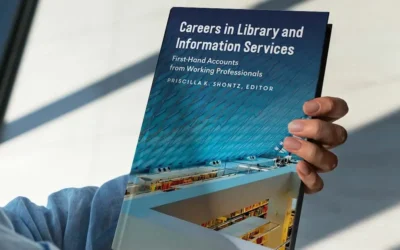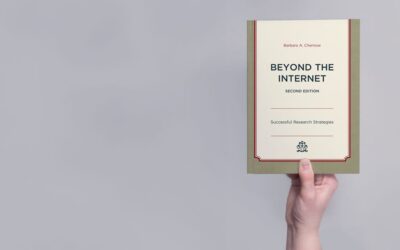Communities of Practice; Relevance to Librarians
Lauren Hays
The concept of communities of practice came from work on a social theory of learning conducted by Lave and Wenger (1991). The idea of communities of practice is that through engagement in social learning settings, members create meaning, engage in practice, build community, and form identities.
When I wrote my dissertation, the study was underpinned by the theory of communities of practice (Wenger, 1998). While my area of study was librarians’ teacher identity development, the community of practice theory has implications for all librarians as they seek to grow in their careers. The theory also has implications for supervisors and hiring managers who need ideas for how to help new hires become part of the team.
Let’s examine the theory a bit more and then, think about how it can be applied.
To understand the conceptual framework of the Communities of Practice social learning theory, one must start with four premises:
- We are social beings. Far from being trivially true, this fact is a central aspect of learning.
- Knowledge is a matter of competence with respect to valued enterprises—such as singing in tune, discovering scientific facts, fixing machines, writing poetry, or being convivial.
- Knowing is a matter of participating in the pursuit of such enterprises, that is, of active engagement in the world.
- Meaning—our ability to experience the world and our engagement with it as meaningful—is ultimately what learning is to produce. (Wenger, 1998, p. 4)
These premises help to make sense of how we should use this theory in our work. Specifically,
- We learn through social interactions.
- It is important to have knowledge of a topic the group deems valuable.
- In order to participate, a person must have certain knowledge.
- Learning produces meaning.
In sum, opportunities for gaining knowledge should be provided. It is important to create opportunities for new hires, your team, or yourself, to engage in conversation and collaborative work in order to grow and learn. Learning helps us make meaning of what we do in our jobs.
While this post only touches the surface of communities of practice, I hope it sparks ideas and encourages you to dig into the theory in more depth. When we understand how humans learn, we can create better opportunities and better places of work.
*Some of these ideas and sentences are taken directly from my dissertation. The full dissertation can be found here.
References and Recommended Resources
Lave, J., & Wenger, E. (1991). Situated learning: Legitimate peripheral participation. Cambridge, UK: Cambridge University Press.
Wenger, E. (1998). Communities of practice: Learning, meaning, and identity. New York, NY: Cambridge University Press.
Wenger, E., & Wenger-Traynor, B. (2015). Introduction to communities of practice. Retrieved from http://wenger-trayner.com/introduction-to-communities-of-practice/
Lauren Hays
Lauren Hays, PhD, is an Assistant Professor of Instructional Technology at the University of Central Missouri, and a frequent speaker on topics related to libraries and librarianship. Her professional interests include information literacy, educational technology, library and information science education, teacher identity, and academic development. Please read Lauren’s other posts about skills for special librarians. And take a look at Lucidea’s powerful integrated library systems, SydneyEnterprise, and GeniePlus, used daily by innovative special librarians in libraries of all types, sizes and budgets
Similar Posts
AI and the Transformation of Information Literacy
Due to the rise of artificial intelligence (AI), information professionals must evolve their teaching and training approaches as technology reshapes the information landscape, because AI has transformed what it means to be information literate.
4 Ways to Promote Sustainability in Special Libraries
The path to sustainability in special libraries combines technological advancement, waste reduction, collection digitization, and community education.
Interview with Technical Services Librarian Becky Givens
Becky Givens is a Technical Services Librarian featured in the book Careers in Library and Information Services, which includes a section on careers in special libraries where librarians describe the work they do in various settings. My interview with Becky is below.
Interview with the Author: Dr. B. Chernow on Going Beyond the Internet
Special librarians know searching the Internet answers specific questions, but you miss or misinterpret information if you only consult the Internet.




Leave a Comment
Comments are reviewed and must adhere to our comments policy.
0 Comments